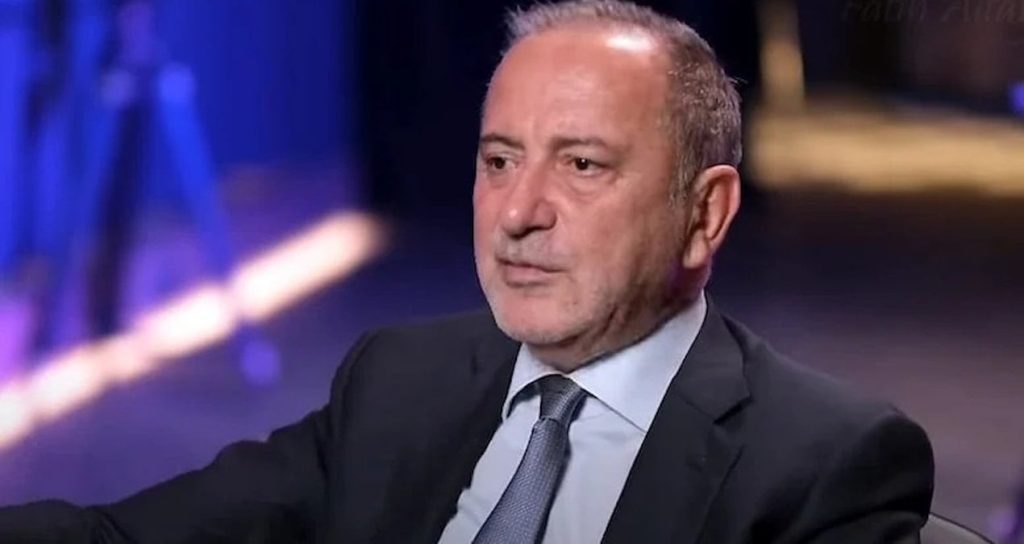In a significant development, journalist Fatih Altaylı was detained by authorities on charges of allegedly threatening President Recep Tayyip Erdoğan. This incident took place after his remarks criticizing the president’s potential to rule for life, which sparked considerable political backlash. The arrest has raised questions about freedom of speech and the tightening grip on dissent in the country.
| Article Subheadings |
|---|
| 1) Details of the Arrest |
| 2) Official Statements from Prosecutors |
| 3) Reactions from the Public and Politicians |
| 4) Context of Altaylı’s Statements |
| 5) Implications for Free Speech |
Details of the Arrest
Fatih Altaylı, known for his outspoken views on political issues, was taken into custody at his residence in Teşvikiye. The detention occurred at night on June 21, 2025, after a video he posted on a social media platform raised concerns among government officials. The charges against him include making threats against the president, which were reportedly sparked by his critical remarks on Erdoğan’s political ambitions.
Eyewitness accounts suggest that a group of police officers arrived at Altaylı’s home and conducted the arrest without incident or resistance. Sources close to Altaylı mentioned that he had no prior notifications regarding any investigation against him. The unexpected nature of his arrest has raised questions about law enforcement’s role in political matters currently under discussion in society.
Official Statements from Prosecutors
The Istanbul Chief Public Prosecutor’s Office released an official statement clarifying the legal basis for Altaylı’s detention. The prosecutors referred to the threats made in a video posted on his channel on June 20, which contained remarks interpreted as threats to the dignity of President Erdoğan. The allegations fall under Article 310 of the Turkish Penal Code, which addresses threats to public officials.
In their explanation, officials emphasized that freedom of expression has its limits, particularly when it concerns the safety and respect of the nation’s leaders. The prosecution claimed that the evidence collected supported the claims against Altaylı, indicating a need to further investigate the complete context behind his statements to ascertain their implications.
Reactions from the Public and Politicians
Reactions to Altaylı’s detention have poured in from various quarters, drawing sharp lines in the ongoing political discourse. His wife, Hande Altaylı, took to social media to express her concerns about her husband’s arrest, describing it as an infringement on freedom of speech.
Political figures, including Murat Emir, a Group Vice President from the opposition CHP party, commented on the situation, questioning the legitimacy of the prosecution’s actions. Emir criticized the swift nature of Altaylı’s custody, asserting that it appeared as though the prosecutor’s office was acting on instructions from the political establishment rather than adhering to rule of law principles.
The public’s response has largely been mixed, with many expressing outrage at the perceived crackdown on dissenting voices. Others, however, argue that Altaylı’s comments warranted legal action, seeing them as threats to national stability.
Context of Altaylı’s Statements
In the controversial video that triggered his arrest, journalist Fatih Altaylı questioned the public’s support for President Erdoğan continuing his presidency for life. He cited statistical data showing that around 70% of people, barring a small faction of ruling party supporters, opposed such an idea. Altaylı referred to historical instances when audiences had taken action against authoritarian leaders, suggesting the need for political accountability.
These statements came at a time when the political landscape in the country has become increasingly polarized. Many citizens have expressed growing concerns regarding democratic backsliding, as the government intensifies its efforts to stifle dissent and control narratives through media regulation and political pressure.
Implications for Free Speech
The arrest of Fatih Altaylı poses significant implications for the state of free speech in the country, raising alarms among human rights activists and journalists. Many fear this incident is part of a broader trend of suppressing freedom of expression, especially concerning criticism directed at government officials.
Legal experts suggest that the case could set a precedent for future actions against journalists and dissenters. Expressions that threaten or challenge the current political order appear increasingly susceptible to legal action, which may deter individuals from voicing dissent. The chilling effect this could have on journalism and public discourse is profound, provoking widespread concern among advocates committed to preserving democratic values.
| No. | Key Points |
|---|---|
| 1 | Fatih Altaylı was detained for allegedly threatening President Erdoğan. |
| 2 | The Istanbul Chief Public Prosecutor’s Office cited specific laws concerning threats to public officials. |
| 3 | Reactions from the public and prominent politicians have been predominantly critical of the arrest. |
| 4 | Altaylı’s statements raised questions about the broader implications for political discourse in the country. |
| 5 | Concerns are growing regarding the future of free speech and journalistic freedom in the country. |
Summary
The recent arrest of Fatih Altaylı has spotlighted significant concerns over free speech and political dissent within the country. As the judicial system gets embroiled in politically charged cases, the implications for journalists and citizens alike become increasingly serious. This incident raises critical questions regarding the role of media in political discourse and the extent of protections afforded to expressions of dissent in a democratic society.
Frequently Asked Questions
Question: Why was Fatih Altaylı detained?
Fatih Altaylı was detained on charges of allegedly threatening President Erdoğan based on comments he made regarding the president’s potential for continued rule, which were perceived as threats by authorities.
Question: What did Altaylı say in the video that led to his arrest?
In his video, Altaylı questioned the possibility of President Erdoğan ruling for life and stated that approximately 70% of the population opposed such an idea, emphasizing the need for accountability in leadership.
Question: How have politicians reacted to the arrest?
Politicians from opposition parties have reacted strongly against Altaylı’s arrest, raising concerns over the misuse of judicial power and calling it a direct attack on freedom of speech.


